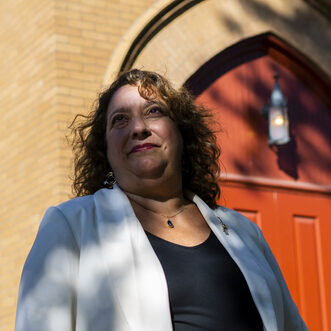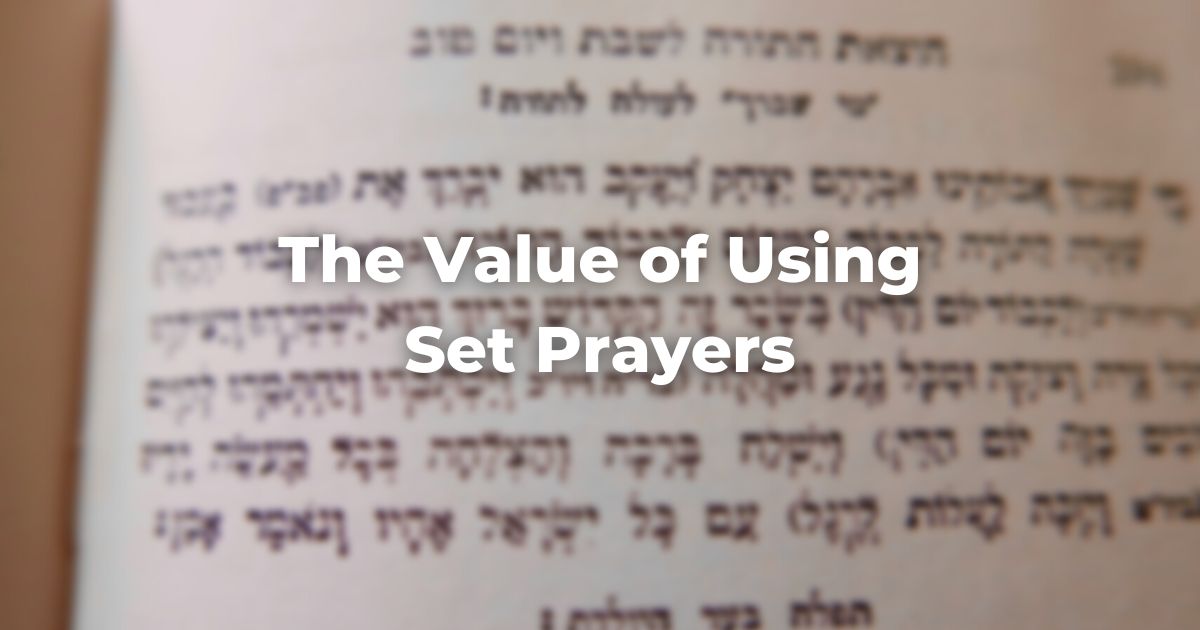By endorsing the use of set prayers in our service, are we ipso facto guaranteeing that some worshippers will be obliged to recite words they do not consider true or meaningful?
This issue has troubled Jewish scholars for generations.
In the end, it became the general consensus among scholars and authorities that the good that derives from fostering communal prayer far outweighs the problems it entails.
And that must be our approach as well.
T’fillah is a difficult craft.
It requires openness to change, sensitivity, creativity, and the ability to keep a well-established routine from becoming stale and stultifying.
While Jewish prayer reflects our relationship with God, it is also about the world of relationships among humans and the struggles of the spirit within one’s self. It will sometimes be necessary to transcend one’s assumptions about the literal meaning of a given text, or to suspend theological assumptions and presuppositions.
This may require searching for an alternate understanding, altering the punctuation to transform its implied meaning, or simply sitting with a text and “praying through it.”
The latter will allow its literal meaning to move through us and speak to us directly rather than through the filter of the critical intellect.
Individuals at prayer with siddurim—prayerbooks—in their hands can think of themselves as actors working through a script. They strive to get “inside the head” of the person who authored the text and to see the world from that person’s perspective.
There are times these attempts will bring us to a deeper understanding of the text, thus helping us come to believe in its core ideas.
There are other times when the basic presuppositions of a text will be so unacceptable that the community itself will insist that the text be rewritten.
These issues are part of the reason that our tradition so valorizes prayer in the communal setting: sacred and ancient texts can be analyzed and evaluated, and then either be found reinterpretable or in need of casual or radical re-editing.
Adapted with permission from The Observant Life.
Authors
-

Rabbi Dr. Karen G Reiss Medwed, is Teaching Professor emerita at Northeastern University. She serves as Interim Vice Provost, Academic Affairs and Initiatives for HUC-JIR. Dr. Reiss Medwed's scholarship includes digital education, higher education leadership, and faith-based education. Dr. Reiss Medwed was ordained by JTS in 1995, and earned her Ph.D. from New York University's Steinhardt School of Education in Curriculum, Teaching and Learning with a specialization in Jewish education in 2005.
View all posts -

The Observant Life: The Wisdom of Conservative Judaism for Contemporary Jews distills a century of thoughtful inquiry into the most profound of all Jewish questions: how to suffuse life with timeless values, how to remain loyal to the covenant that binds the Jewish people and the God of Israel, and how to embrace the law while retaining an abiding sense of fidelity to one’s own moral path in life.
Written in a multiplicity of voices inspired by a common vision, the authors of The Observant Life explain what it means in the ultimate sense to live a Jewish life, and to live it honestly, morally, and purposefully. The work is a comprehensive guide to life in the 21st Century. Chapters on Jewish rituals including prayer, holiday, life cycle events and Jewish ethics such as citizenship, slander, taxes, wills, the courts, the work place and so much more.
View all posts




